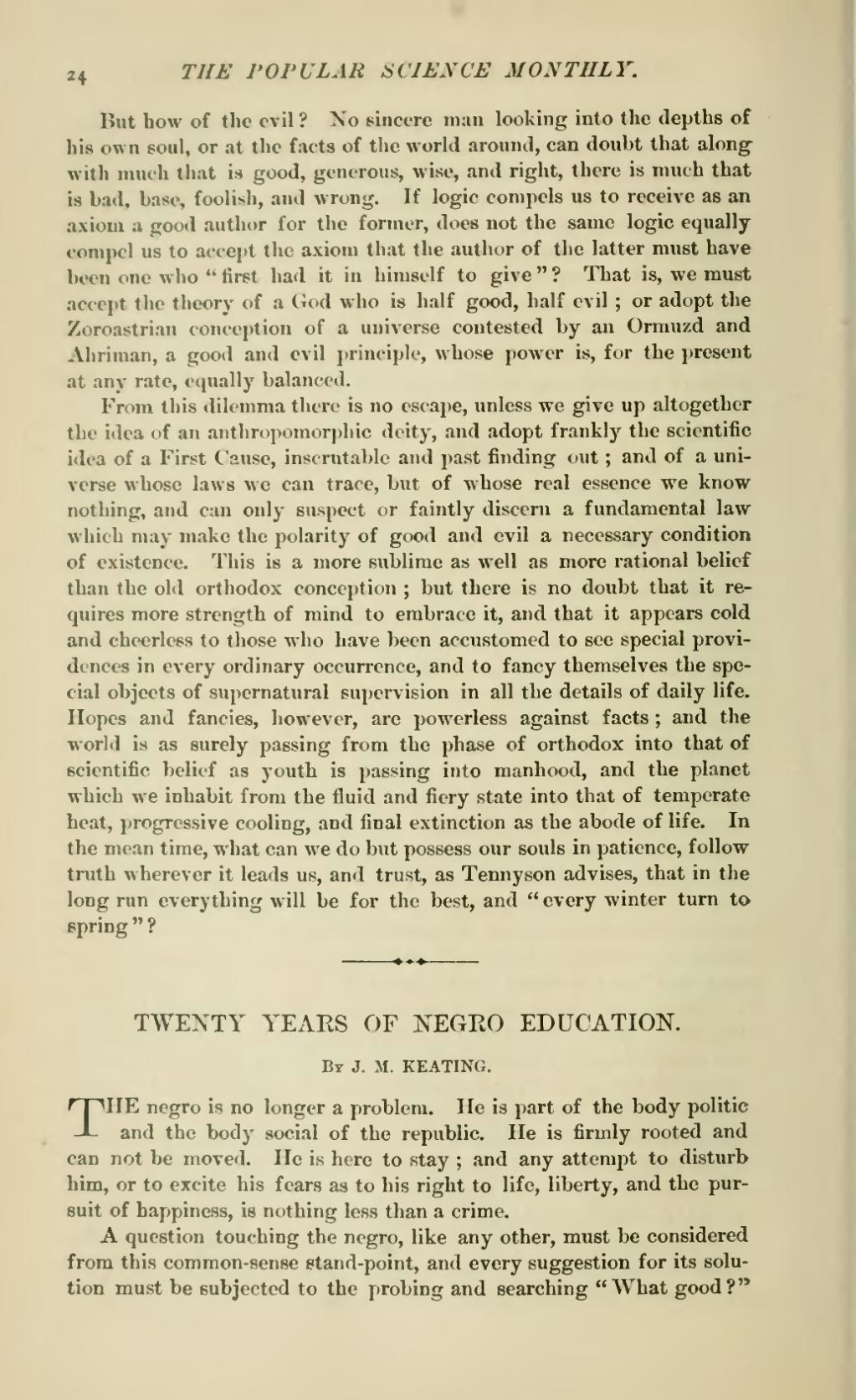But how of the evil? No sincere man looking into the depths of his own soul, or at the facts of the world around, can doubt that along with much that is good, generous, wise, and right, there is much that is bad, base, foolish, and wrong. If logic compels us to receive as an axiom a good author for the former, does not the same logic equally compel us to accept the axiom that the author of the latter must have been one who "first had it in himself to give"? That is, we must accept the theory of a God who is half good, half evil; or adopt the Zoroastrian conception of a universe contested by an Ormuzd and Ahriman, a good and evil principle, whose power is, for the present at any rate, equally balanced.
From this dilemma there is no escape, unless we give up altogether the idea of an anthropomorphic deity, and adopt frankly the scientific idea of a First Cause, inscrutable and past finding out; and of a universe whose laws we can trace, but of whose real essence we know nothing, and can only suspect or faintly discern a fundamental law which may make the polarity of good and evil a necessary condition of existence. This is a more sublime as well as more rational belief than the old orthodox conception; but there is no doubt that it requires more strength of mind to embrace it, and that it appears cold and cheerless to those who have been accustomed to see special providences in every ordinary occurrence, and to fancy themselves the special objects of supernatural supervision in all the details of daily life. Hopes and fancies, however, are powerless against facts; and the world is as surely passing from the phase of orthodox into that of scientific belief as youth is passing into manhood, and the planet which we inhabit from the fluid and fiery state into that of temperate heat, progressive cooling, and final extinction as the abode of life. In the mean time, what can we do but possess our souls in patience, follow truth wherever it leads us, and trust, as Tennyson advises, that in the long run everything will be for the best, and "every winter turn to spring"?
| TWENTY YEARS OF NEGRO EDUCATION. |
By J. M. KEATING.
THE negro is no longer a problem. He is part of the body politic and the body social of the republic. He is firmly rooted and can not be moved. He is here to stay; and any attempt to disturb him, or to excite his fears as to his right to life, liberty, and the pursuit of happiness, is nothing less than a crime.
A question touching the negro, like any other, must be considered from this common-sense stand-point, and every suggestion for its solution must be subjected to the probing and searching "What good?"
